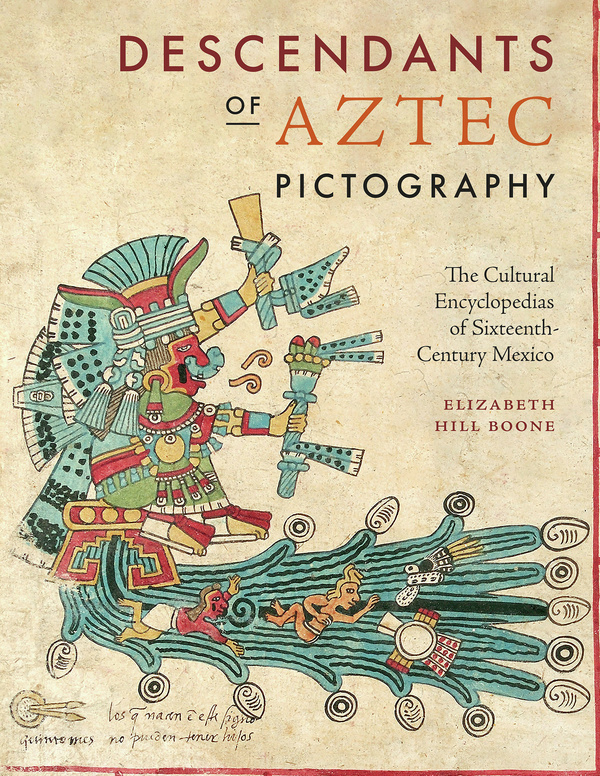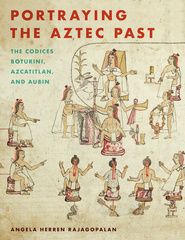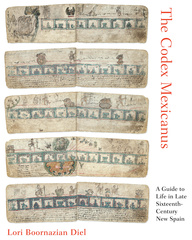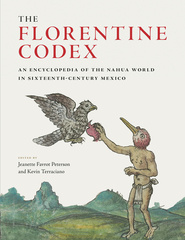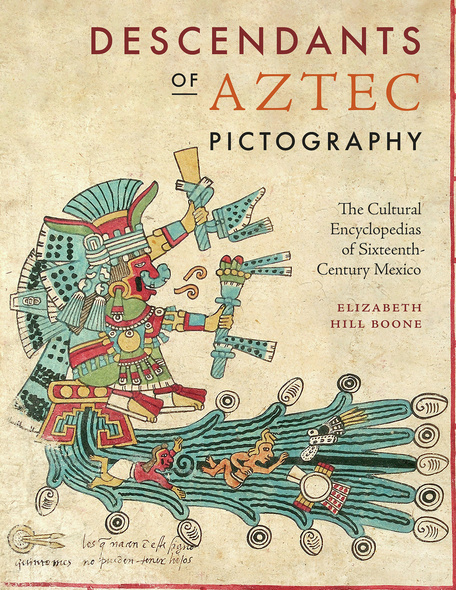
Descendants of Aztec Pictography
The Cultural Encyclopedias of Sixteenth-Century Mexico
In the aftermath of the sixteenth-century Spanish conquest of Mexico, Spanish friars and authorities partnered with indigenous rulers and savants to gather detailed information on Aztec history, religious beliefs, and culture. The pictorial books they created served the Spanish as aids to evangelization and governance, but their content came from the native intellectuals, painters, and writers who helped to create them. Examining the nine major surviving texts, preeminent Latin American art historian Elizabeth Hill Boone explores how indigenous artists and writers documented their ancestral culture.
Analyzing the texts as one distinct corpus, Boone shows how they combined European and indigenous traditions of documentation and considers questions of motive, authorship, and audience. For Spanish authorities, she shows, the books revealed Aztec ideology and practice, while for the indigenous community, they preserved venerated ways of pictorial expression as well as rhetorical and linguistic features of ancient discourses. The first comparative analysis of these encyclopedias, Descendants of Aztec Pictography analyzes how the painted compilations embraced artistic traditions from both sides of the Atlantic.
The sixteenth-century conquest of Mexico brought into contact European and Indigenous ways of understanding and recording the world...Boone, through careful observation and detailed analysis, carries out a comprehensive study of the pictorial encyclopedias that were a product of this encounter...Boone’s book presents a model for the investigative power of close observation to decipher the impact of Indigenous forms of knowledge in colonial works. Boone’s clear writing and use of numerous examples make the volume accessible not only to specialists in Mexican manuscripts but also to a broader audience interested in Indigenous traditions, European epistemological projects, and colonial encounters.
There has simply never been anything that comes close to what Boone has accomplished in this book. Its broad scope, its impeccable scholarship and thoroughness, its revelations of sources such as European costume books, its intelligent analyses, and its persistent questioning of how exactly Aztec pictography both worked and changed through time, make it what is—and will be, for a long time to come—the definitive source on Aztec pictographic encyclopedias.
This is a work of rigorous and insightful scholarship, described in clear and readable prose...[Descendants of Aztec Pictography] is a detailed and fascinating study of cultural persistence and change. The sixteenth-century pictorial manuscripts of New Spain were neither fully indigenous nor European colonialist works. Elizabeth Boone’s accomplishment is to disentangle the changing mixture of these traditions as the sixteenth century unfolded. This is an outstanding book...It should be in the library of all Mesoamericanists.
Boone’s capacious knowledge of the texts themselves and the secondary literature on those texts is on full display [in Descendants of Aztec Pictography] and allows her to craft a sort of guidebook to the pictorial encyclopedia genre...[Boone’s] typology of Mexican manuscript painting, of which this volume is but the latest installment, is what makes her work so foundational to the study of Nahua culture and history.
This illuminating and meticulous study of a sixteenth-century genre of ‘cultural encyclopedias’ is a worthy finale to Elizabeth Boone’s comprehensive studies of Mesoamerican manuscripts. Deploying her well-honed comparative methodology, Boone unravels the tangled genealogies of the manuscripts as well as their myriad sources (some now lost) and interrelationships. The author identifies the bicultural influences at play, from precontact pictorial manuscripts to imported classical and medieval encyclopedias, travel reports from ‘exotic’ lands, and costume books. When conventional sign systems are combined with European mimetic representations, these encyclopedic histories preserve ‘old forms’ while creating ‘new content’ to accommodate colonial systems of recording knowledge.
Descendants of Aztec Pictography: The Cultural Encyclopedias of Sixteenth-Century Mexico is one of the best and most valuable academic works on the important set of pictorial histories made in sixteenth-century Mexico. This book is a necessary work for anyone working on indigenous themes, whether the sixteenth-century transformation of indigenous lore and painting traditions or pre-Hispanic Mesoamerican works and societies.
With this book, Elizabeth Boone has hit the trifecta. It joins her two earlier, and equally masterful, books on the indigenous manuscripts of Mexico, Stories in Red and Black and Cycles of Time and Meaning in the Mexican Books of Fate. Together, the three are indispensable for understanding one of the world’s great book traditions, which flourished in Mexico both before and after contact with Europe. Boone seamlessly integrates an encyclopedic understanding with a lively and appealing prose, making this book both accessible for the student and satisfying for the expert.
List of Tables
Acknowledgments
Chapter 1. Paintings from the Past
Chapter 2. Graphic Complexity in New Spain
Chapter 3. The Encyclopedic Tradition in Europe
Chapter 4. The Evangelical Project and Mendicant Investigators
Chapter 5. Early Compilations: Codices Borbonicus and Mendoza
Chapter 6. The Mid-Century Encyclopedias: Codices Telleriano-Remensis and Ríos and the Magliabechiano Group
Chapter 7. Durán and Sahagún: Cumulative Expositions of the Late Sixteenth Century
Chapter 8. Memories in Figures
Notes
References Cited
Index

